How do you navigate change in your life? Especially when it’s the big, scary kind?
I’ve often thought that I’m good with change. Excited by it even. I couldn’t understand it when people said things like ‘humans are creatures of habit, we don’t like change.’
In day to day life, I tend to enjoy it when things are positively disrupted; an impromptu call from a long lost friend, out of the blue opportunities to explore and create, shaking things up etc. Having also had three sabbaticals so far - which have involved setting up home in New Zealand and moving back again, a menagerie of bucket list experiences that had me hopping from one country to another in a six month period, and most recently as jack-it-all-in to go to full-time circus school during the pandemic at 38 years old (which frankly should have a whole post of it’s own) I genuinely thought I was adept at change. Pro, even.
Yet I now find myself in the midst of an unfamiliar and unsettling response to change. Some excitement is present, but there is also a great deal of fear, sadness, apprehension, and grief.
Two things seem to have prompted this.
I am about to leave my beloved Oxford to move to the country with my partner and his dog. This should, general societal conditioning tells me, be an entirely wonderful affair, something which I should be openly rejoicing about whilst skipping around sunny wildflower meadows. It’s true that I am excited about aspects of it.. a larger garden for one, hearing more birds in the morning (hopefully), the possibility of a slower pace of life (if I can embrace it).
The prospect of moving also comes with challenges that I hadn’t anticipated. I will be moving away from my favourite dance class. This sounds menial I know, but this class is so much more than a dance class. Over the years, this class has given me something that brought joy when I was in deep pain, gave me a community of people and friends that bring out the best in me, gave me something to look forward to, something to build my life around when I was recalibrating constantly. It is the constant that I need when everything else is a mess. You can read more about what that class means for me in my most popular post to date here.
I’m also moving away from my river - the place where I swim and walk every day, the place where I feel alive and wild and free in the way that only nature can make you feel. The place I’ve written about here. Reflecting on this, I am in awe of how those small things actually make up large chunks of who we are, and how we probably don’t notice their importance most of the time. Indeed, it is the fact that we are moving which nudged me into realising that these small things are indeed big things. The BIG things that I love and need and are part of my identity.
More difficult, and the hardest to engage with, is the fact that I have developed asthma in later life. It turns out, and this is the hard part, I only have asthma due to a relatively severe allergic response to our cherished working cocker spaniel, Benni. This sucks.
When you’ve come to accept, like I have, that you will not be a mother in the traditional sense (more on that later), and have decided, in part, that will be ok because you love animals and will simply look after lots of hounds instead, this feels particularly shitty.
We are in the messy part of not knowing what to do, trying to make seemingly impossible decisions, circling back, tears, anger and generally being pissed off at the world. I am now jealous of dog owners. It represents another thing that everyone else seems to be able to have and a whole other layer of grief that seems faintly ridiculous. Yet, it is there. (There’s more to say on this, but I don’t have the words yet. For another post, perhaps?)
To sum up, I guess I feel like I might be moving away from huge chunks of myself. And that SCARES me deeply. Moving away from a self that I spent so long trying to find. A self that I’m really content with, that I like, appreciate and respect. A self that feels like it’s home already. The part of me that loves newness and discovery is finally saying ‘hey, maybe you don’t need to seek anymore, maybe you’re ok exactly where you are.’
I don’t know what the answers are to any of this. Sometimes I think that if we move and it doesn’t feel right we can just move back. Other times I feel that I should be listening to that deep part of myself that knows. I wish it felt less binary. Maybe it is and I can’t see it yet? Maybe there’s a third way that feels less wobbly?
How do we know when to stay or go? What to keep and what to evolve?
It is also about being 42. We don’t have kids, and as I inch closer to 43 it looks like we probably won’t be having any either. Two years ago, I was deep in the horrible grief of this, feeling like a failed woman, knowing that there would always be this gap in my projected female experience, a painful longing for something I could never fully understand or have as part of my life. Now, it feels like I have got over that bump. I have accepted that the child shaped hole will likely always be a part of my human experience, but it doesn’t carry quite so much weight or sadness anymore. It is as it is. There are times when I see mum’s carrying their children, that safe and beautiful bond so visual that my heart lurches, but thankfully I can be happy to witness it without it ‘othering’ me like it used to. This liminal space is something that is rarely talked about and I feel slightly lost in it. I don’t have the tools to navigate it so am sitting in it. Waiting for it to settle. Maybe it won’t, and so perhaps I need to shift the waiting feeling into one that allows for settling with the uncertainty. Settling for the liminal. Is that possible?
Things that help me navigate change
In my quest to understand my current semi-chaotic internal state, these things have helped.
Nature. Watching the summer slowly change to autumn at the start of September, feeling it ping back to summer right now with the 20ish degrees of full-on sun that we’re having, but still get darker, earlier, to remind us all that it’s the UK and it’s about to get colder and much, much grey-er in the way that only the UK can, I am reminded that change is a fickle process.
Being in change is messy, it goes backwards and forwards and throws up thunder and lightning and rainstorms and inaccurate forecasts after days and weeks of otherwise perfect weather.
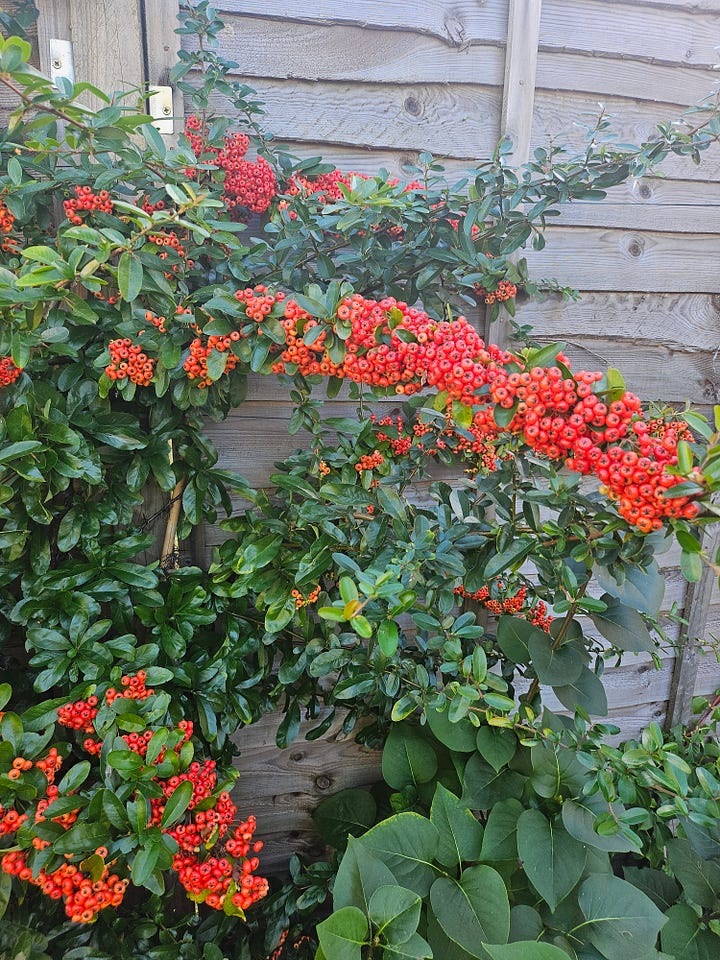
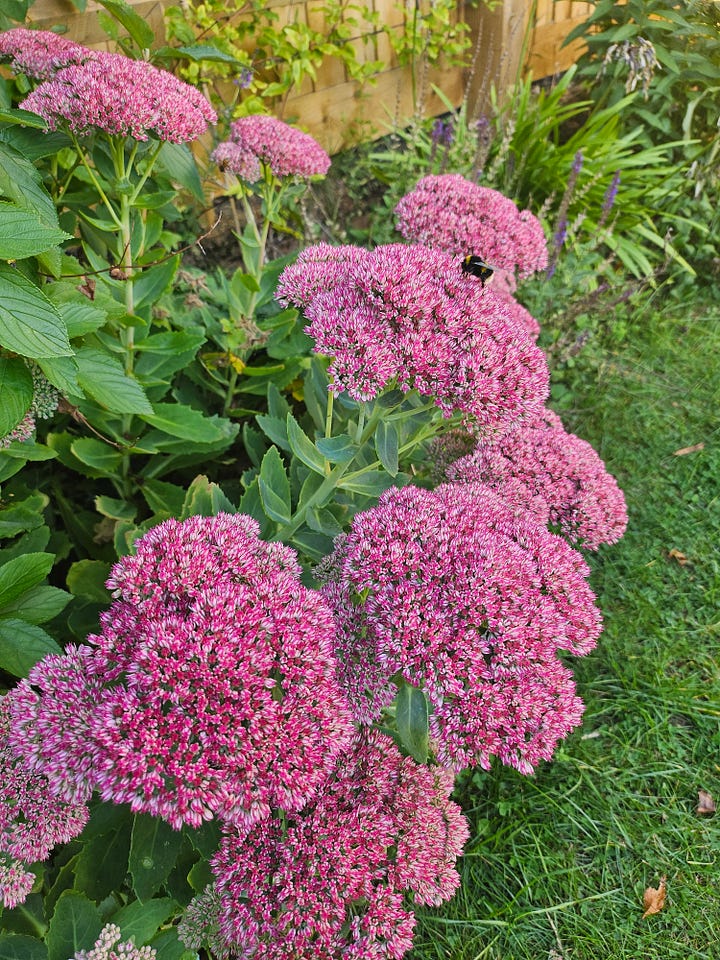
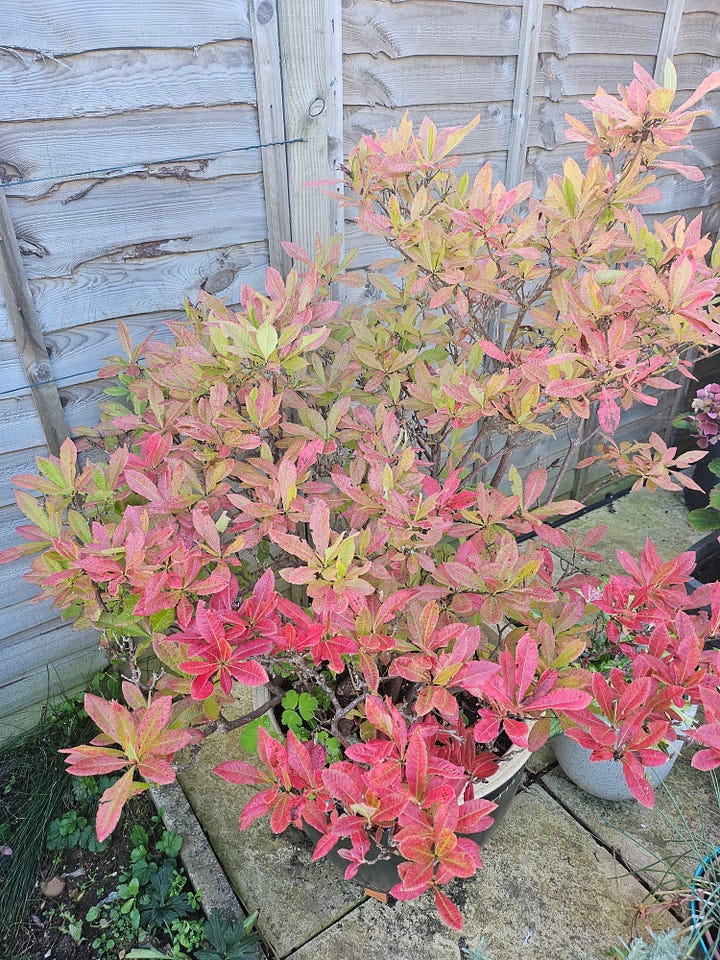
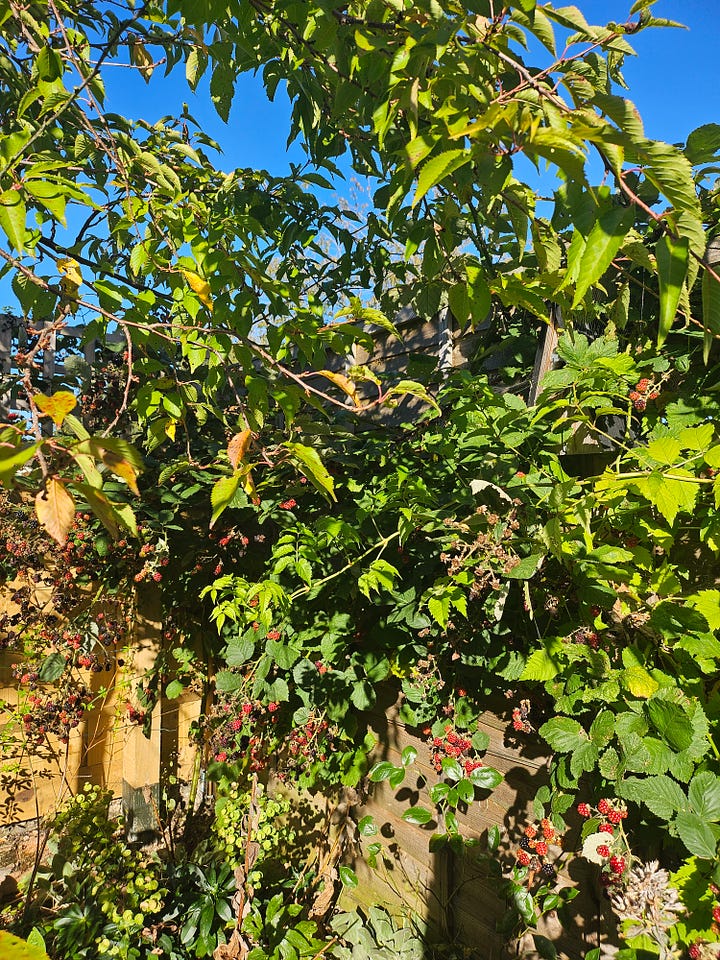
It shifts bright greens and purples and mauves to reds and oranges and the warmest browns, along with the knowledge that once lost they will return again next year. My garden, which knows so much about change, helps me learn where to place things, what soil they need, how much sunlight and water is required, and to keep recalibrating in response to how things grow. There is so much wisdom in the natural environment, in seasons, in responsiveness to what is, and to learn from it grounds me so much. I think of my garden like a wise old teacher, a sage. One day I will write more on this. I want to give nature so much more of my time. Give back to it for what it gives me.
Incredible writers. Women write so beautifully about change. I think we are closer to it somehow, perhaps through the cycles of womanhood that we experience whether we are mothers or not. Recently, I was drawn to the following books; all helped soften the sharpness of the confusing feelings I’m experiencing:
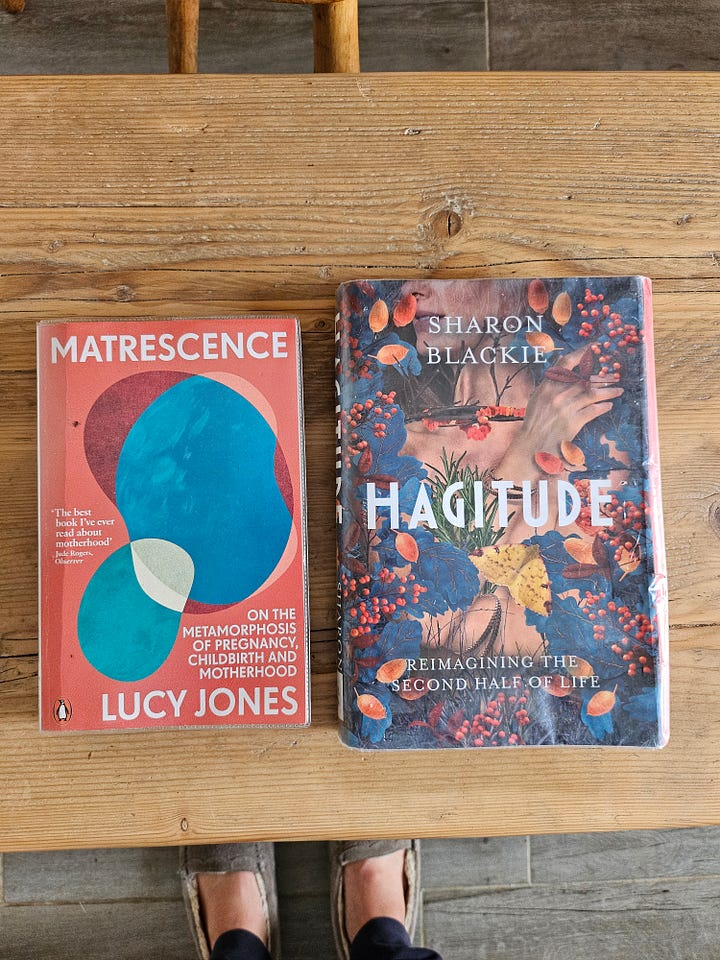
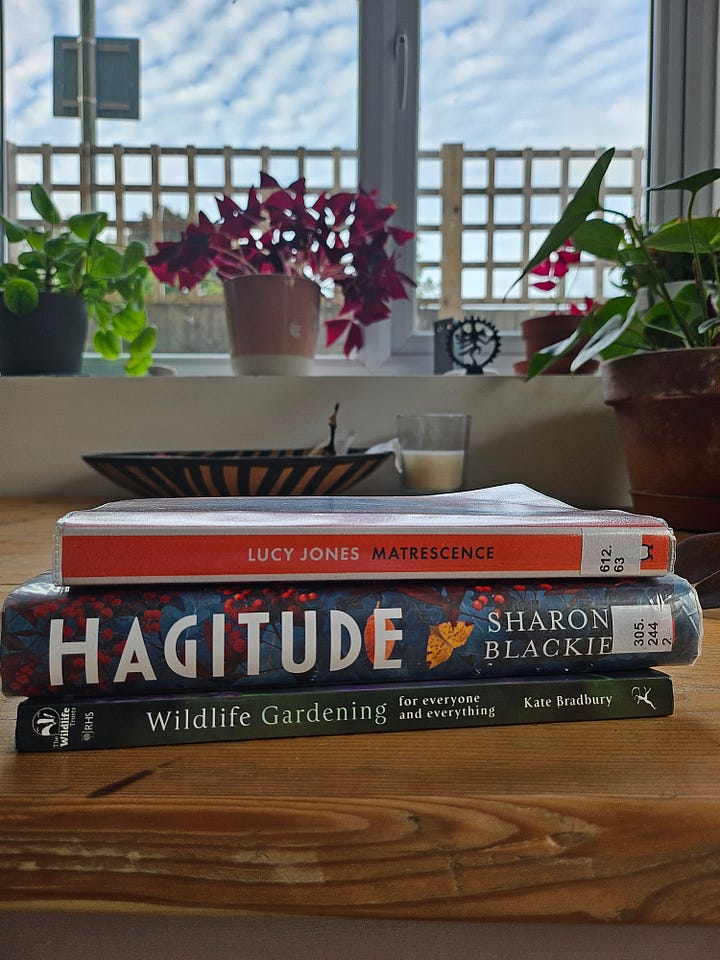
Lucy Jones’ Matrescence is an exploration of the process of becoming a mother and how it affects mind, body and soul.
‘s Hagitude is an exploration of the transition through menopause through a mythological and reimagined lens and how that affects mind, body and soul. Both books incorporate nature and explorations of natural processes, personal stories and are two of the best written accounts of female metamorphosis that I have ever read. I felt fortunate to read them both together, to reflect on how motherhood and menopause have strong similarities, even though one is the process of creating life and the other is the end of that process (in the physiological sense). Both are awakenings. Both can be tough and beautiful and claustrophobic and freeing. Perhaps this is what change is? A series of ‘ands’, a deluge of feelings, a process of not knowing, yet really, really knowing.I would strongly urge everyone to read both books. I thought I would find Matrescence hard emotionally, was worried I would feel envious, but the sheer honesty of Jones’ writing left me in serious awe of mothers, and of all women who have gone through these processes without proper support, information and advice. Hagitude too, provided a different narrative of menopause and life, and positive thoughts of how different things could be if we all move on from patriarchy and linearity as it currently sits. After reading them, I felt proud to be a woman and in wonderment of how we navigate change.
Similarly,
’s marvellous books The Bumblebee Flies Anyway, One Garden Against the World and Wildlife Gardening for Everyone and Everything are helping me navigate change of a different sort. Climate change, biodiversity loss and habitat destruction occupy my mind most days as new housing developments go up around Oxford with ever increasing height and width and loss of green space. Being very sensitive to this, with no real way to control it, these books have left me with a renewed sense of hope and a way forward for trying to manage what I can in my own tiny part of the world. There is so much more to say on this, but right now I want to urge everyone to read Kate’s books, take a look at your gardens and outdoors spaces and ask yourself how you might create a better relationship with nature? What might you be able to do to create a home for it? Over the last year, seeing more bees and butterflies (and greater varieties of both) in my small city garden, along with my first ever mistle thrush, gave me a sense of optimism and wholeness like nothing else. When things change for the worse, we can take small changes to make things a little better.Next up
Talking of incredible writers, I can’t wait to get stuck into
’s new book The Giant on the Skyline, a memoir which feels like it was made just for me at this point in time. The tagline says that it’s ‘a travel memoir about wanting to stay put’ which sums up my internal state quite neatly. In a neat parallel, we are moving from central Oxford to the Gloucestershire/Wiltshire border, the same places that Clover is struggling to leave. Whilst our move isn’t geographically as big as Clover’s, the emotional scale of it feels the same, so am hoping to feel less alone by reading it. There is comfort in knowing we are all navigating similar changes, and being on is really helping with that. Thank you to all the that I read on here. What a wonderful community we are. I will, of course, write back on how it lands in me.And an explanation…
Some may have noticed that my Substack has morphed from The Dance Floor into The River. I explain why here. You may also have noticed that I’ve been on hiatus for the summer. This wasn’t intentional, more that life took over, change is happening and my focus was split and splintered, across good and bad. Curiously, I was thinking about writing the whole time that I wasn’t actually doing it, and now I’m back I can see that was perhaps necessary. Writing this out has helped me process. It felt like the right time to write. I spend too much time analysing and thinking about writing rather than just doing it, and my learning is that I should simply get on and do. Being in the process, like the process of moving, of bodily changes and milestones is where the gold is. How much we learn when we listen to ourselves, our environment and those who have learnt before us.
How do you navigate change? And what’s your experience of moving when you heart is torn between two places? I’d love to know. Do let me know in the comments below.


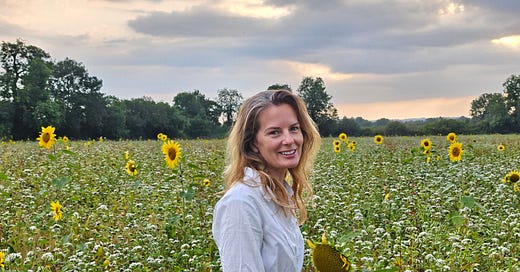



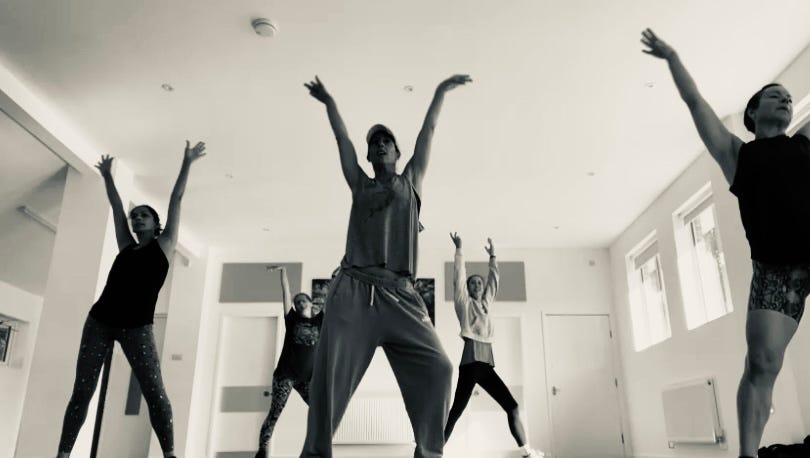

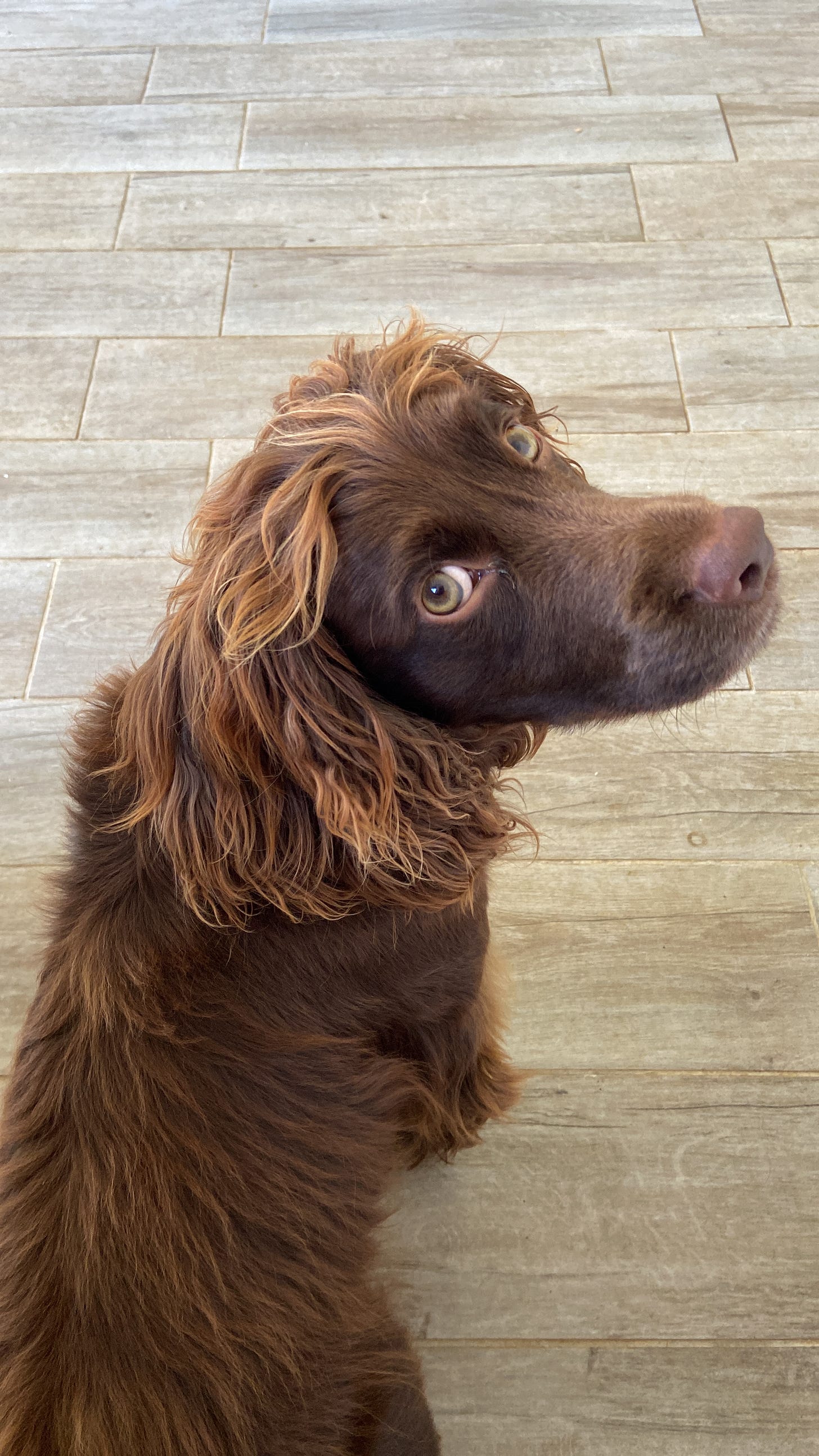
This is a wonderfully honest piece, Lara. I also loved KB’s the Bumblebee flies anyway. You’ve reminded me to look up her other books. Great to chat to you yesterday and I will steadily make my way through your other posts x
Hey, have you moved now? I feel you. I would miss my weekly dance class so much.